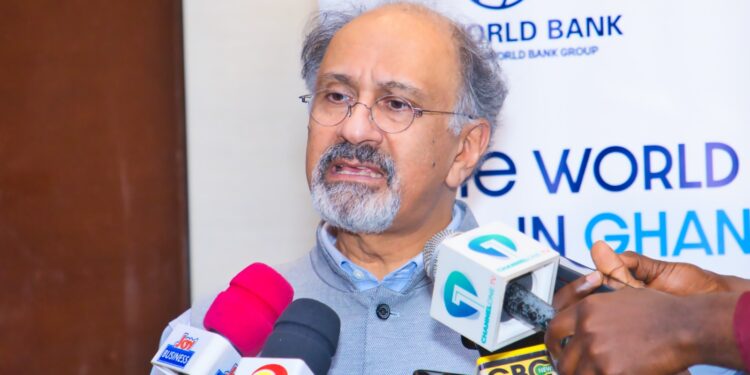World Bank Chief Economist Urges Ghana to Focus on Public Spending Quality and Revenue-Raising Efficiency
If your public spending is highly efficient, raising more revenues can be justified. But if not, you could be taxing citizens while delivering subpar results (sic).

Ghana must prioritize improving the quality of its public spending and revenue-raising efforts if it is to achieve sustainable economic growth, according to Indermit Gill, Senior Vice President and Chief Economist at the World Bank.
Speaking during the presentation of the 2024 World Development Report, titled The Middle-Income Trap, Mr Gill argued that focusing solely on increasing revenues without assessing the efficiency of government expenditure risks undermining long-term fiscal stability.
- Advertisement -
“The focus should not just be on the difference between revenues and spending,” he said. “You also need to assess the quality of both revenue-raising efforts and public spending. If your public spending is highly efficient, raising more revenues can be justified. But if not, you could be taxing citizens while delivering subpar results (sic).”
- Advertisement -
Mr Gill’s remarks come as Ghana grapples with the challenge of accelerating growth while avoiding the middle-income trap, a predicament faced by many countries that have transitioned from low- to middle-income status but struggle to move to the next stage of development.
The 2024 World Development Report highlights that out of 108 middle-income countries globally, only 34 have achieved high-income status over the past three decades.
The report outlines a phased approach that has proven effective in countries like South Korea, where economic policy focused initially on investment, and then on integrating foreign technologies, before evolving into a robust innovation-driven economy.
- Advertisement -
South Korea, which had a per capita income of just $1,200 in 1960, has since transformed into a high-income economy with a per capita income of $33,000 by 2023. This success story, according to the World Bank Chief Economist, underscores the importance of moving beyond simple investment and adopting foreign technologies towards fostering a culture of innovation.
The report also warns of the fleeting nature of the demographic dividend—a boost in economic growth resulting from a favourable age structure. Mr Gill cautioned that countries like Ghana and India, which currently benefit from such a dividend, must act swiftly to harness this opportunity.
“These demographic dividends don’t last forever,” he said, stressing the need for urgency in capitalizing on this advantage through structural reforms and investments in human capital.
The challenge, however, remains formidable for Ghana and other middle-income nations. The World Bank report concludes that achieving the leap to high-income status requires a careful balance between investment, technology diffusion, and homegrown innovation.
Failure to strike this balance, Mr Gill warns, could leave countries languishing in the middle-income trap for decades to come.
Source:norvanreports.com
- Advertisement -



